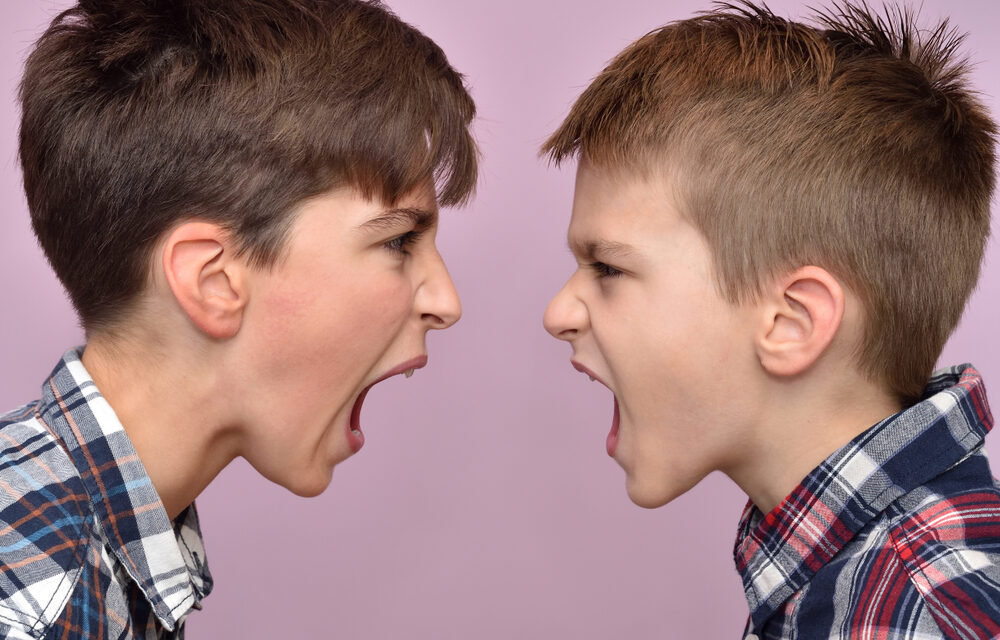Arguing, name-calling, tattling, physical fighting, and taking one another’s things gets on everyone’s nerves. Why are your kids fighting? The root of sibling rivalry is usually the feeling of competition.
Siblings might also fight because they want to see how much power they can have over another child. Your younger child might not have any other way to experience power than to push his brother. And an older child might try to get a younger child in trouble to feel more powerful.
Here are a few tips to help you deal with sibling rivalry:
Structure Your Home to Avoid Fighting
Set out toys you know they both like, or get art projects or crafts going – things you know they can share. If you have the space in your house, give each child their own play area to do their own thing without getting in each other’s way. Their space can be very small, just a corner of one room, and you can use a small carpet or rubber floor pads to mark off their individual areas.
Talk about a Fight
Coach your kids about how to respond when their sibling does something they don’t like. Teach them to be assertive – if your child doesn’t like when his brother calls him names teach him to tell your brother “I don’t like it when you call me names. My name is Jonas and that is what I want to be called.”
And teach them that If they can’t control their temper, they can use some calm down skills like walking away, counting or taking 3 breaths.
Encourage to Solve Problems Themselves
Your kids can resolve the fight on their own. If you need to get involved ask them how to solve the conflict. Try asking “What do we need to do so everyone can have a good time?” Remember that when you give the fighting your attention you are rewarding the fighters and when you let it play out, you teach them to work conflicts out on their own.
Don’t Blame One Child (even if one child is to blame)
Its hard for you to really know what happened and if you don’t know all the facts, you might accidentally be misguided. You don’t know what happened earlier in the day that might have set off the current fight. But the real reason not to place blame or punish one child is that it can make the fighting worse if one child knows they can get the other in trouble by starting a fight.
Use the “all in the same boat” strategy
Whatever the consequence of the fight is, it needs to be the same for everyone involved. It they are fighting over a toy, the toy goes away for the rest of the day for everyone. Your kids will quickly learn that it is in the best interest of everyone to find a solution before they get, you know, “put in the same boat.”
Check in After a Big Fight
If they are old enough to discuss and share, check in on how the sibling conflict is going with each child. Maybe do this at bedtime when things might be calmer. When you listen to your child’s perspective, you probably won’t solve the problem, but when your child feels heard it can go a long way to soothe their emotions. You can ask – “What were you feeling when it happened? what do you wish your brother would do differently?”
Don’t Accept Violence
If your kids are hitting and using physical violence, tell them every time that violence is not acceptable. But you can still ask them about their feelings after, it just doesn’t make their actions ok.
Set a good example
Keep your cool and kids will follow your lead and learn to stay calm too. The way you react and the way you calm yourself down is what they will see. Also, the way parents interact with one another and with other adults sets an example for how children should interact. If you slam doors and have loud arguments, kids are more likely to see this as the way to handle an issue and they will slam doors and yell too.
Kids just want your attention and fighting gets them what they want! Your kids’ emotions are not an excuse for their bad behavior, but kids are more likely to cooperate if they feel heard.





